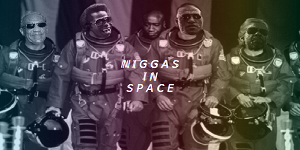2016-02-08 at 5:17 PM UTC
Obbe
Alan What?
[annoy my right-angled speediness]
In another thread we discussed the concept of free will and the possibility that free will may not exist. It can be argued that free will is illusory, and if it is true that "free will" is illusory, it can also be argued that "the self" is illusory.
What is "the self"? Most people tend to think of the self as some interior essence that distinguishes a person from the world around them. But if you think about it, it's fairly obvious that you didn't just will those thoughts you are thinking right now anymore then you willed the words that I typed on this screen. Thoughts just arise in your mind. If the self is not really the author of your own thoughts, what is the self? If we suggest that the self is consciousness, then what is consciousness? A highly evolved sort of awareness, a highly evolved reaction to our environment. It appears to be perfectly reasonable to suggest that the environment is the cause of consciousness, for consciousness arose out of this environment and if there were no environment to be conscious of, what exactly would consciousness even consist of?
This sort of realization leads us away from an egocentric view of life, and that can be liberating. We are not truly separate. We are linked to each other, and to the world around us, throughout time and space. While you might not take credit for your talents it's still important that you use them. While you might not really be to blame for your weaknesses, it's still important to correct them. What is the value in pride and shame when it would be better to just commit to well being and the improvement of your life and others?
2016-02-11 at 4:23 AM UTC
The self is an illusion and consciousness arises from physical processes in the brain. Nothing more needs to be said, really. Philosophers tend to overthink this.
2016-02-11 at 6:38 AM UTC
I would say the development of an individual self is dictated by understanding of free will. I argue that deterministic aspects of our universe and free will are not mutually exclusive. In a big picture sense we do not think of an inanimate object as having free will and the inanimate far surpasses the animate in time spent in existence. If we narrow our focus to the microcosm of the animate we find that freedom of will, or at least some notion that our actions are inherently our own plays integral roles in major religious philosophies across the globe. It is important to note that these philosophies generally cede that ones actions are theirs and the individual possesses its own will but in doing so they tend to espouse a code of restriction on what one ought to or should do in a moral sense. What I mean to get at is that free will is an illusion and is really no more than a quandary of existence that stimulates the mind. In the end of it all it does not matter if we have the truest form of free will or are in the truest sense vessels for a deterministic energy designed to enact various probabilities and statistical potentialities. What does matter is your own experience of whatever this little flash of existence lends you.

